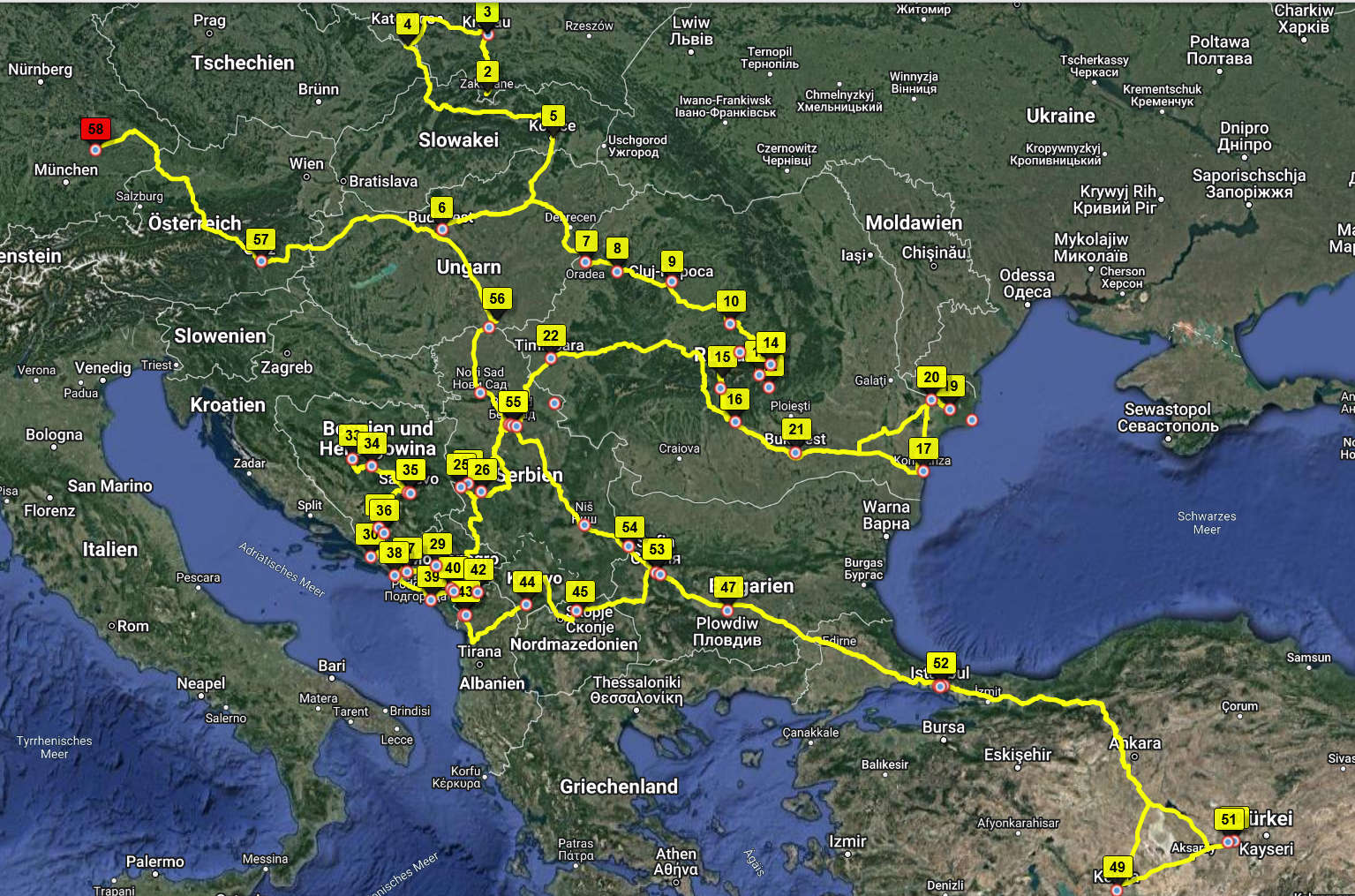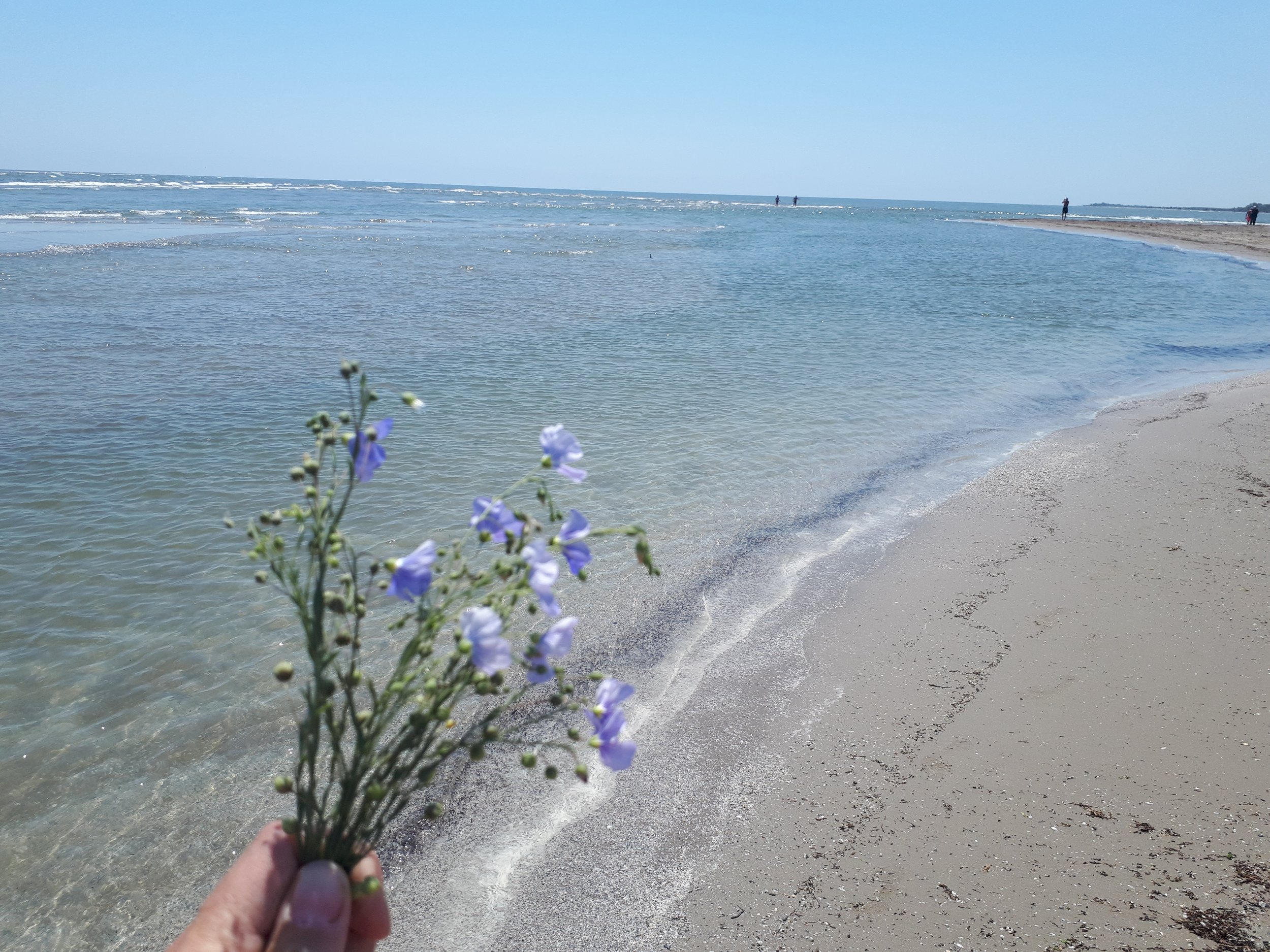Nomadic Soul Musings
Recently, I set out on a journey from Poland to Turkey.
Having served in Oswiecim for 7 months and helped ground the One Humanity Institute a bit more, as well as provide emergency relief to Ukrainian refugees, but also having struggled deeply with inner and outer, personal and organisational dynamics, challenges and pains in the highly loaded and polarising context of Auschwitz, I realised it was time to leave for a while, give it all some space, some distance to be able to see and sense more clearly again.
So I took advantage of the half-price Interrail ticket sale, bought a 3 month train pass, left my room and put my handful of belongings into a storage space, and hit the road with my friend Mohammed, who joined me from England.
After the first few weeks of recharging and slowing down as we journeyed through stunning Romania, zigzagged across the country to visit friends and meet strangers, stop in some of the most beautiful nature, and hike, swim and wild camp in spectacular places, Mohammed and I decided to go more separate ways, following our own trails, but to keep meeting as and when we happened to be in the same place.
While I said goodbye to Mohammed and other dear friends in Bucharest to continue my journey into and through the Balkans, I opened to allowing my capacity to bear witness to and hold space for great trauma and pain to inform my path and steps, following the call to where it felt right. Having intended to bypass Serbia and head straight into Bosnia, I realised – as I walked across the Serbian border in midday heat and no shade or means of transport in sight – that I could not simply ignore this country. I realised I wanted to stay, I wanted to experience this country, listen to the stories of the land and the people, and not close myself to the former aggressor. I realised that this was a journey of bearing witness, of listening, of allowing the power of conscious and compassionate witnessing and listening be expressed through me by not closing my eyes or ears but by continuing to look, to listen, to bear witness, and to hold space, facing and meeting the challenges, pains, trauma, and histories of all the places and people.
As I slowly journeyed from place to place, by train, bus, boat, hitch-hiking, and walking, I met some truly wonderful souls, saw spectacular nature, was greeted with heart-warming and heart-opening hospitality and generosity and made a bunch of friends along the way. I opened to stories and lives along the road and let my heart be touched and cracked open with every encounter. I heard numerous moving and painful stories about the wars, the genocide and ethnic cleansing, about life before and after the wars, as well as of the daily struggles with sky-high inflation and rising prices, as well as corruption, autocratic governments, organised crime and drug trading, ethnic and religious divides, and (social and economic) inequalities – and little hope or chance for improvement.
I visited museums, photography exhibitions and went on guided tours to learn more about the context and complexity of histories. I got a sense of all the trauma and the remnants of the war that are still alive and lingering in people and places and experienced the healing power of being a compassionate and conscious witness in places where the international community has not been very present or supportive in times of darkness. Knowing that simply by holding space and listening, simply by being fully present, I was able to serve the people and places I encountered. I also realised with every conversation, historical podcast, or museum visit that I was still only barely scratching the surface of the intricate complexity of these contexts.
While I had spent the last months in a context in which (Nazi-)Germany had really fucked things up, it was interesting and somewhat healing to find myself in places now where there was, in general, a strong pro-German sentiment, full of gratitude and appreciation of what Germany had been giving to many people from the Balkans before, during and after the wars there. Every now and again, I was surprised to find out that so many people spoke broken or even fluent German – when I got into a car with or met some older people, expecting to not have a shared language, my prejudice was often instantly challenged by their ability to speak German. In fact, in some places German helped me more than English.
The more I spoke to people, the more I began reflecting on the idea of the European Union and Germany’s/central Europe’s role in it, and how crazy a construct it was, to try and bring such a huge variety of countries, cultures, economic and political contexts into one governance unit. Hearing many stories and accounts of tremendous levels of corruption, broken political systems, the UN-induced political stalemate of Bosnia and Hercegovina, the role of UN military bases within Kosovo, as well as the ongoing tensions and struggles between e.g. Serbia and Kosovo but also within Bosnia and Hercegovina made me reflect on international governance and peacebuilding from a variety of stances and lenses.
As I crossed a myriad inner and outer borders – often by foot, walking slowly in hot summer sun across no-man’s-land between countries – I opened to facing and dismantling my own stereotypes, prejudices and assumptions stemming from an embarrassing lack of knowledge and awareness of the countries I was traveling through. Meeting Mohammed every now and again, I also got the chance to reflect on and acknowledge how I was riding a wave of white woman privilege compared to his experiences of everyday racism and micro-aggressions, as well as full on racist and xenophobic attacks, in the same places that had greeted me with such heart-warming openness.
I enjoyed moving between different languages, cultures and religions, spent time in churches and mosques and graveyards, parks and cafes and city centre squares, visited film festivals, street performances and places of pilgrimage, slept in hostels, on sofas and on my super thin yoga mat in my borrowed tent in some of the most spectacular places. I faced irrational fears of bears and wild boars and scary humans in solo camping nights, braved icy winds and freezing nights high on mountain tops, and marvelled at the full moon, the stars and a hundred hot air balloons rising in the early morning sun.
With every step, with every encounter, I felt a sense of reaffirmation to continue to be of service, to keep putting my privilege and talents at the service of people, places, something bigger. As I was going through the application process for the Process-oriented Psychology Diploma studies, I also felt a recommitment to keep learning, improving, doing my inner work and being of better service to people and the world.
As the time was coming to return to Germany, I began the long overland trip from central Anatolia back to central Europe, taking buses, trains and rides in cars, spending countless hours at border crossings, feeling the sharp changes from south to north, east to west. Changes in wealth and income, standard of living, material possessions (and new-ness of material possessions), hospitality, generosity and open-warm-heartedness, nature as nature - not shaped by man into agriculture or cut through by industry and infrastructure, trust in the state vs corruption, structure and regulatedness vs. free flow and flexibility (but also corruption and connections that open doors), arbitrariness at borders, use of cash vs. card payments, talking on buses/trains/to strangers in general… I eventually arrived in central Europe with a sense of lack of direction, lack of home, need for rest, recharge, and feeling a little lost between worlds and cultures and spiritual traditions.
After working with a group of young people in Germany, I began feeling the healing effect of this, as well as of the journey – I noticed I was slowly beginning to embrace my Germanness, maybe not fully embrace it yet, but certainly no longer rejecting it. I was beginning to accept it, beginning to own it more.
As I continued my journey north and west, to friends and colleagues in the Netherlands, I began to hear another, strong inner call to return to Auschwitz once again, realising my time there is not finished. Returning maybe not to resume working with OHI, who knows, but certainly to keep serving this place and the souls there. While I am still not sure why they keep calling me back, I can feel clearly it is not over yet, I still have a lot of work to do there.
And so, in the end, the journey took me from Oswiecim through numerous lands and places – back to Oswiecim.










